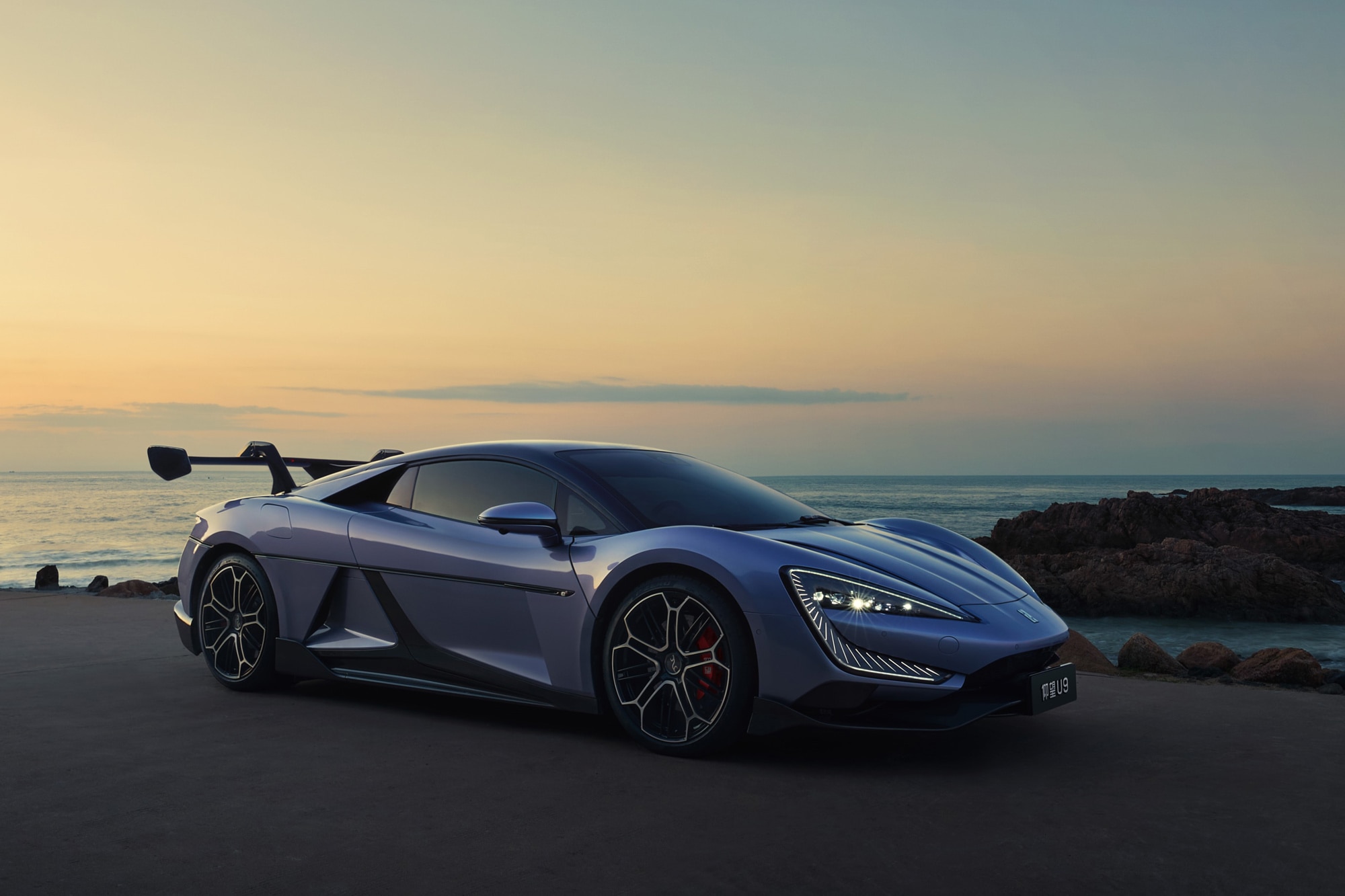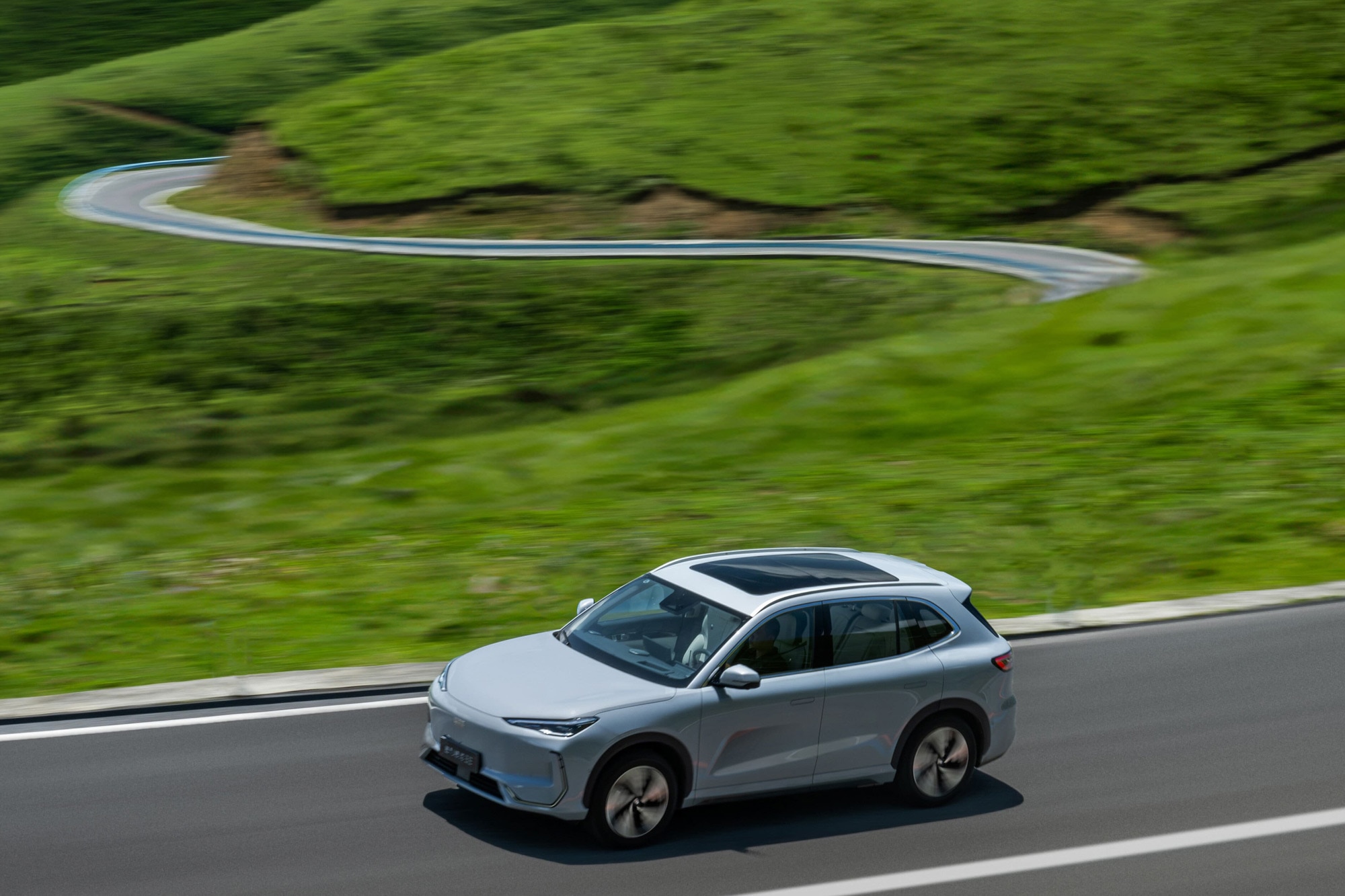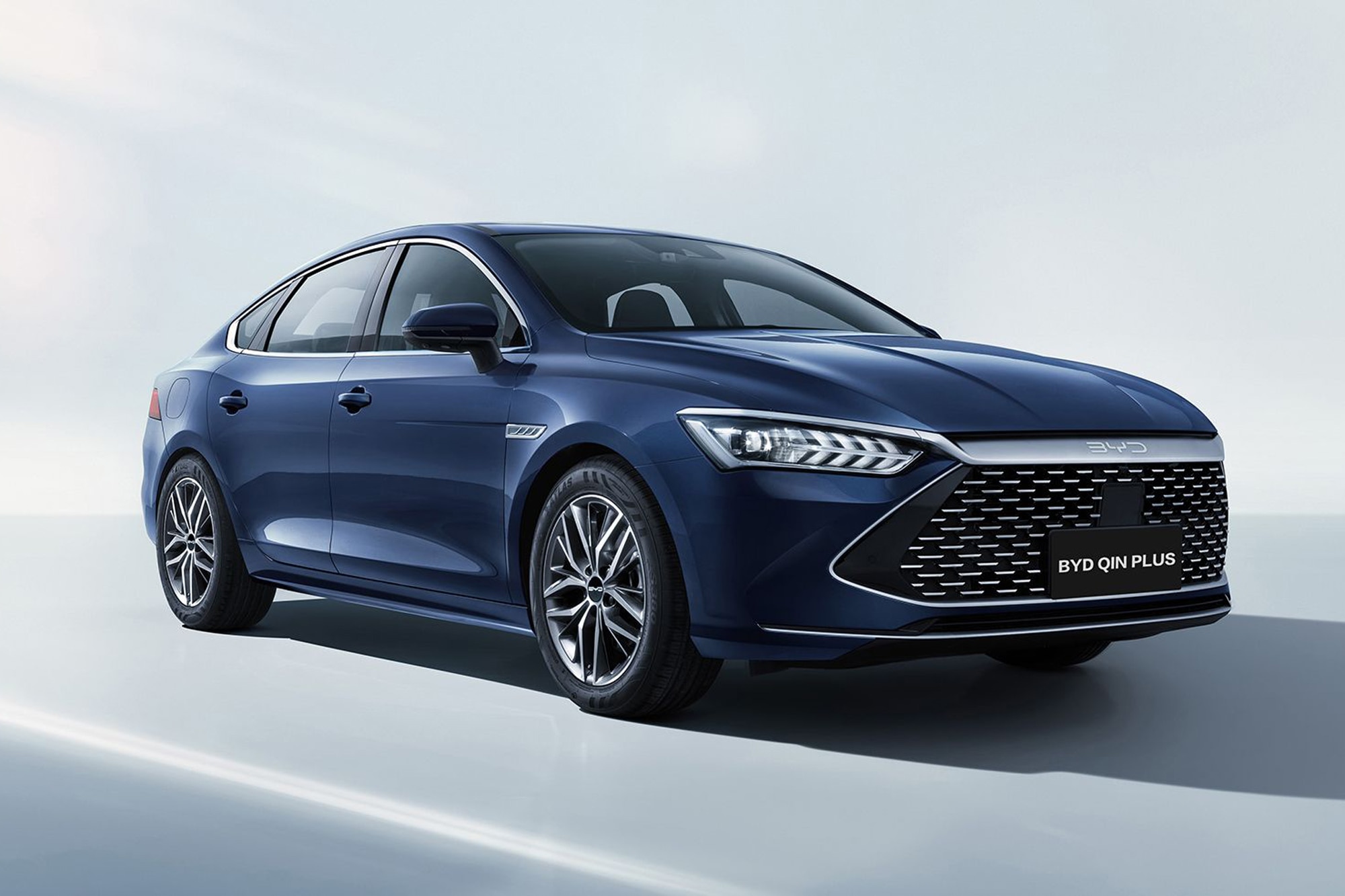Why China Isn't About to Take Over the U.S. EV Market
High tariffs on electric vehicles from China are keeping low-cost vehicles from reaching our shores.
 BYD
BYD
In May 2024, the U.S. government quadrupled tariffs on Chinese-made EVs to 100%, hiked from 25% in the previous month. Additional tariffs have also been placed on China's lithium-ion batteries, solar cells, steel, and aluminum.
In June 2024, the European Union sent its own message that it wants EVs to be built on its soil, boosting tariffs to up to 38% on major Chinese automakers on top of an existing 10% duty.
The U.S. federal government, meanwhile, said when announcing the increased tariffs that China's trade practices — including forced technology transfers, stolen intellectual property, and overproduction of state-subsidized goods — are a threat to U.S. competitiveness. The administration also asserts that Chinese-made cars may use software that collects personal sensitive data.
But some industry experts are pushing back on the clickbait headlines and cautionary tales. Even without tough tariffs, they say, EV brands from China are still a long way from cracking the notoriously tough U.S. market.
For Chinese Automakers, Tariffs Are Only the First Barrier to Success
China's EV makers have become experts at efficient manufacturing. They handle mining, refining, and manufacturing of the world's battery materials, which helps keep costs low. With lavish government subsidies thrown in, companies such as BYD, Geely, Nio, Chery, and Wuling can build and sell EVs for less than any global rival.
They're not just making economy cars. Zeekr, the Geely-backed luxury brand, plans to expand into Europe and Latin America this year and has filed for a public offering on the New York Stock Exchange.
It's the possibility of a mass invasion of these unfamiliar Chinese brands, with vehicles priced to undercut rivals from the U.S., Europe, South Korea, or Japan, that has prompted the U.S. and European Union to toughen their trade barriers.
The biggest player, BYD, is neck and neck with Tesla as the world's largest EV maker and has established a modest foothold in Europe. Cars such as the BYD Seagull and the about $22,000 Qin Plus have captured the imaginations of budget shoppers — including prospective buyers who have been discouraged by a shortage of affordable EV models in the U.S.
If automakers want to sell EVs here, they must build them here, ensuring U.S. manufacturing jobs and a secure domestic supply chain.
Some analysts say the stiff U.S. tariffs are largely symbolic for now, affecting only about $18 billion in Chinese exports.
"The tariffs don't really change the near-term outlook for consumers," said Stephanie Brinley, principal auto analyst for S&P Global Mobility. "It's about a broader protectionist stance."
Brinley said that even before the tariffs, no automaker had announced plans to sell Chinese-branded cars in the U.S. That underscores the idea that success in the United States hinges on much more than affordability.
For any unknown, unproven brand, she said, there's no magic bullet.
"Even if you can break through on price, there's so much work to be done," Brinley said. "You have to have the mix of price and product, the patience to build a brand, and that takes 10 or 15 years."
As for models such as the Seagull, Brinley said that even before the epochal shift to larger, ever more lavish SUVs and pickups, U.S. citizens never gravitated to pint-sized budget cars.
"To think these cars are going to be a high-volume play in the U.S.," she said, "is unrealistic."
 Geely
Geely
Bargain-Basement Prices on Chinese Cars May Be an Illusion
Even if cars from China make it to U.S. showrooms, consumers shouldn't assume they'll be a screaming bargain. Those inexpensive prices in China may not make it across.
A Reuters analysis showed that China's automakers are charging more than double their domestic prices in five key export markets, including Europe, and pocketing the difference in profits. In China, BYD sells its Atto 3 compact crossover for just over $19,000, more than double that for a nearly identical car in Europe, which is competitive with other EVs in its segment but isn't a steal.
Either way, Chinese automakers might be feeling some urgency. Cracks are showing on their home turf. A brutal price war — including Tesla's decision to cut prices by up to 9% — and daunting factory oversupply saw more than a dozen of China's EV brands close up shop last year.
In this overstuffed market, the average automaker's profit margin fell to 5%, the lowest in a decade, according to the China Association of Auto Manufacturers. That has China looking to Europe as the best place to boost flagging margins at home. Even with the EU's newly stiffened tariffs, companies such as BYD could still have enough wiggle room to sell cars profitably in Europe.
Competition is heating up in the U.S. as well, suggesting Chinese dominance is far from decided. All eyes are on the first major interloper from China, the 2025 Volvo EX30, built by Volvo's Chinese owner, Geely, at a plant in Zhangjiakou. The subcompact crossover is supposed to arrive later this year, starting from about $36,000.
According to Reuters, Volvo has managed to skirt tariffs on the EX30 so far because it also exports similar models from its plant in South Carolina. Volvo hasn't commented publicly on whether it will be paying tariffs on the China-built EX30, but it seems unlikely that the company will be able to absorb a 100% tariff without some corresponding hike in the showroom price.
Reports now suggest the EX30's U.S. arrival could be in limbo due to those steep tariffs.
 BYD
BYD
EVs Are Becoming More Affordable and Plentiful in the U.S.
Shifts are underway in the U.S. EV market that will only make things more difficult for Chinese brands.
Sticker prices for new EVs have fallen 9% since last year to around $55,000 on average, which is still about $10,000 more than the average internal-combustion car. More electric cars are expected to arrive in U.S. showrooms before the $7,500 incentive expires.
General Motors stated that an all-new Chevrolet Bolt, coming in 2025, will be the most affordable EV sold in the U.S. To do so, it will need to undercut the roughly $29,000 2025 Nissan Leaf S. Later this year, Chevrolet will offer a version of the electric Equinox SUV starting from $35,000, and it is expected to qualify for the $7,500 federal incentive.
Volvo's recent moves suggest that automakers — whether from Europe, South Korea, or the U.S. — are bowing to dictates to build EVs and source batteries in the U.S. Volvo has already begun building its larger EX90 electric SUV in South Carolina.
A new report from the
Written by humans.
Edited by humans.
 Lawrence Ulrich
Lawrence UlrichLawrence Ulrich is an award-winning auto writer and regular contributor for a variety of national newspapers, magazines, and web sites. He and his territorial cat are Brooklyn-based. Lawrence is also the proud owner of a fast-but-frustrating 1993 Mazda RX-7 twin-turbo R1.
Related articles
View more related articles